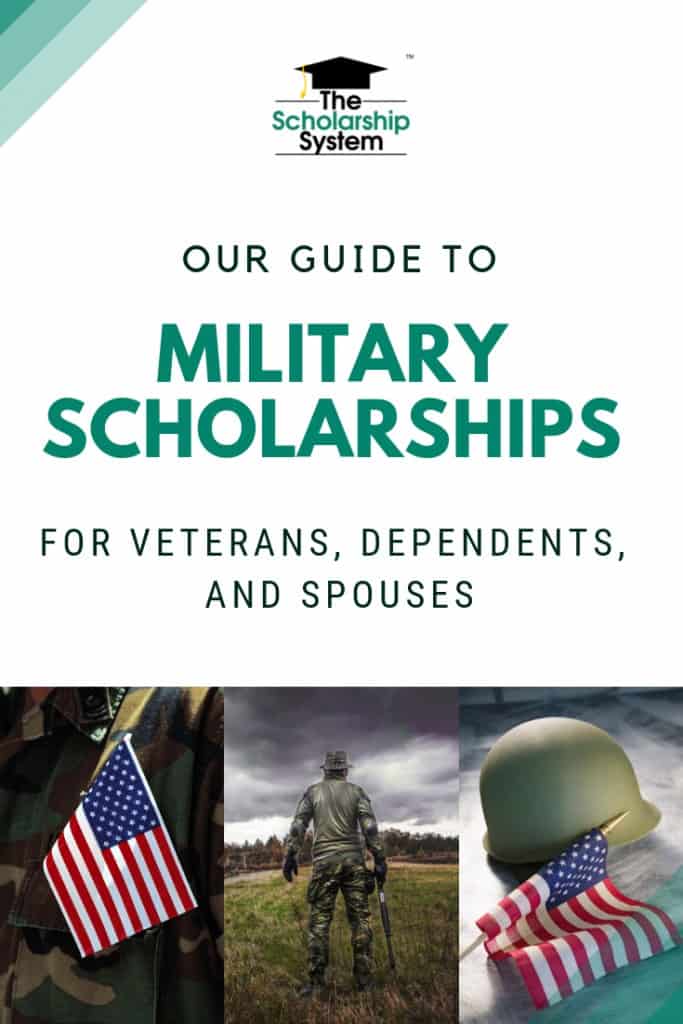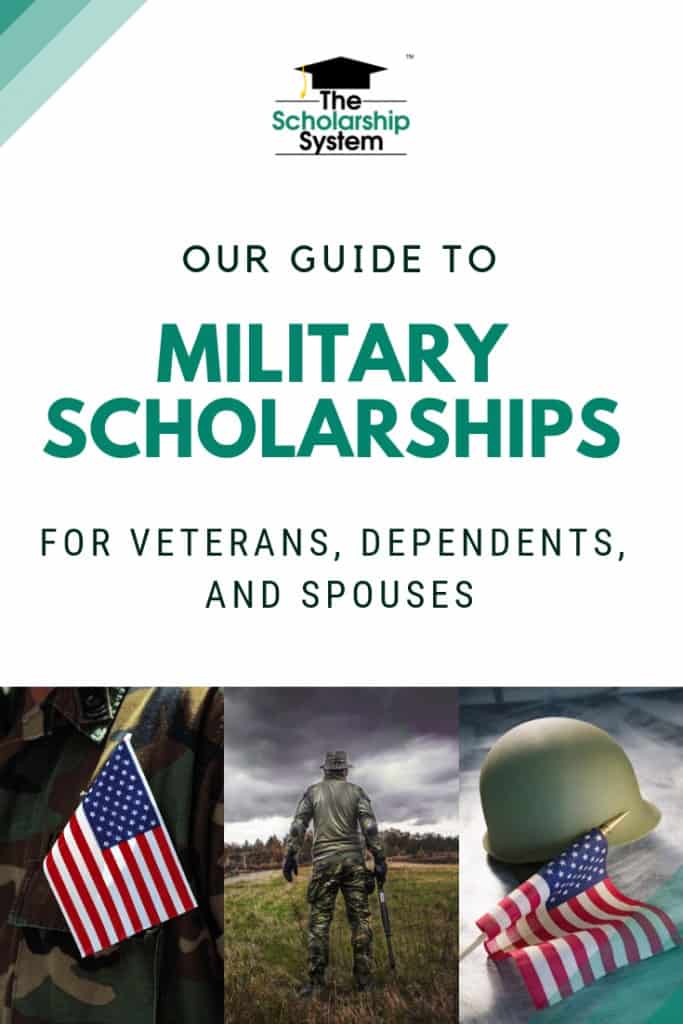Scholarships for Veterans and Their Families: Financial Aid Resources

Navigating higher education can be challenging, especially when considering its financial implications. For veterans and their families, the pursuit of a degree or vocational training can be made more attainable through scholarships and grants. These opportunities recognize the service and sacrifice of our armed forces, providing crucial financial support to those seeking to improve their lives through education. This article offers a comprehensive overview of available scholarships specifically tailored for veterans, their spouses, and their dependents. It highlights eligibility requirements, application processes, and valuable resources to help maximize your chances of securing financial aid.
Scholarships and Financial Aid for Veterans and Their Families
Navigating the world of higher education can be challenging, especially when it comes to funding. For veterans and their families, a variety of scholarships and financial aid resources are available to help ease the financial burden. These resources often recognize the sacrifice and commitment of veterans and their families, providing opportunities for them to pursue their educational goals. Understanding the available options and eligibility requirements is crucial for accessing these valuable resources. Federal programs, state-sponsored initiatives, and private scholarships all offer avenues for veterans and their dependents to achieve their academic aspirations.
Federal Government Scholarship Programs
The federal government offers numerous programs designed to support veterans' education. The Post-9/11 GI Bill is perhaps the most well-known, providing financial support for tuition, housing, and books. Other federal programs, such as the Yellow Ribbon Program, partner with educational institutions to cover tuition costs that exceed the GI Bill's limitations. In addition to these, veterans may also be eligible for federal student loans and grants, further supplementing their financial resources for higher education and vocational training. These programs aim to ease the financial strain of education, allowing veterans to focus on their studies and successfully transition into civilian life.
State-Specific Scholarships and Grants
Many states offer scholarships and grants specifically for veterans and their families who reside within their borders. These state-level programs often have specific residency requirements and may be tailored to veterans who served in particular branches of the military or participated in specific operations. The eligibility criteria and award amounts vary widely from state to state, so it's crucial for veterans to research the opportunities available in their state of residence. State grants and scholarships can provide a significant financial boost, helping veterans afford tuition, fees, and other educational expenses, further complementing any federal benefits they may receive.
Private Scholarships and Grants
A wide array of private organizations and foundations offer scholarships and grants to veterans and their families. These scholarships often have specific criteria, such as academic merit, field of study, or financial need. Organizations like the Veterans of Foreign Wars (VFW) and the American Legion offer numerous scholarships to veterans and their dependents. Additionally, many companies and businesses offer scholarships as part of their commitment to supporting veterans. These private sources can be highly competitive, but they represent a valuable opportunity to secure additional funding for education.
Scholarships for Dependents and Spouses
Many scholarships and grants are specifically designated for the dependents and spouses of veterans. These scholarships recognize the unique challenges faced by military families and aim to support their educational pursuits. Some scholarships prioritize dependents of disabled or deceased veterans, providing critical financial assistance during difficult times. These resources can make a significant difference in the lives of military families, helping spouses and children pursue their academic goals and build a brighter future. Supporting military families strengthens our communities and honors the sacrifices made by veterans.
How to Apply and Maximize Your Chances
The application process for scholarships and grants can be competitive, so it's essential to present yourself in the best possible light. Begin by thoroughly researching the eligibility requirements and deadlines for each scholarship. Craft a compelling personal statement that highlights your achievements, experiences, and educational goals. Obtain strong letters of recommendation from professors, employers, or military supervisors who can attest to your character and abilities. Submitting a complete and well-prepared application significantly increases your chances of receiving an award. Be proactive, persistent, and organized throughout the application process.
| Scholarship Name | Eligibility | Award Amount | Application Deadline | Website |
|---|---|---|---|---|
| Post-9/11 GI Bill | Veterans who served after September 10, 2001 | Variable (Tuition, Housing, Books) | N/A (Ongoing) | VA.gov |
| Yellow Ribbon Program | Eligible Post-9/11 GI Bill recipients attending participating schools | Variable (Tuition Coverage) | Varies by school | VA.gov |
| VFW's Sport Clips Help A Hero Scholarship | Active duty, veterans, and National Guard/Reserve members pursuing education | Up to $5,000 | Varies Annually | VFW.org |
| American Legion Legacy Scholarship | Children of deceased or disabled veterans who served during specific wartime eras | Up to $20,000 (over four years) | Varies Annually | Legion.org |
| Pat Tillman Foundation Scholarship | Veterans and active-duty service members, and their spouses | Variable (Based on financial need) | Varies Annually | Pattillmanfoundation.org |
Can you get a scholarship if your parent is a veteran?

Eligibility Based on Veteran Status
Many scholarships are exclusively for children of veterans, focusing on different aspects of the veteran's service. Eligibility often depends on factors like:
- The veteran's branch of service: Some scholarships are specific to veterans of the Army, Navy, Air Force, Marine Corps, or Coast Guard.
- The veteran's period of service: Some scholarships prioritize veterans who served during specific wars or conflicts like Vietnam, the Persian Gulf War, or the Iraq/Afghanistan wars.
- The veteran's disability status: Scholarships may be available for children of veterans who are disabled or have died due to their service.
Types of Scholarships Available
Scholarships for dependents of veterans come in various forms, each with its own criteria and funding level. The most common types include:
- Federal Government Programs: The US government offers several programs like the Fry Scholarship, which provides benefits to children and surviving spouses of service members who died in the line of duty.
- State-Sponsored Programs: Many states have their own scholarship programs for veterans and their dependents. These programs often prioritize residents of the state.
- Private Organizations and Charities: Numerous non-profit organizations and charities offer scholarships for the children of veterans. These scholarships are often highly competitive.
How to Find and Apply for Scholarships
Finding and applying for scholarships requires thorough research and careful attention to detail. Follow these steps:
- Utilize Online Scholarship Databases: Websites like Sallie Mae, Scholarships.com, and Fastweb allow you to filter scholarship opportunities based on veteran status.
- Contact Veteran Organizations: Organizations like the American Legion, Veterans of Foreign Wars (VFW), and Disabled American Veterans (DAV) often have information on scholarships.
- Check with Educational Institutions: Colleges and universities often have scholarships specifically for dependents of veterans. Contact the financial aid office for details.
Important Documentation Required
When applying for scholarships related to a parent's veteran status, certain documentation will be required to verify eligibility. Common documents include:
- Veteran's DD Form 214 (Certificate of Release or Discharge from Active Duty): This form provides proof of the veteran's service and dates of service.
- Proof of Relationship: Birth certificates or legal documents are needed to prove the applicant's relationship to the veteran.
- Official Transcripts: Academic transcripts from high school or college are usually required.
The Fry Scholarship and Other Federal Benefits
The Fry Scholarship is a significant federal program that provides assistance. It is just one example of benefits that may be available.
- The Marine Gunnery Sergeant John David Fry Scholarship: This scholarship provides tuition and fees to eligible children of service members who died in the line of duty after September 10, 2001.
- Dependents' Educational Assistance (DEA) Program: This program offers education and training opportunities to eligible dependents of veterans who are permanently and totally disabled due to a service-related condition or who died while on active duty or as a result of a service-related condition.
- State-Specific Programs: Investigate education benefits and tuition waivers offered by the state where the veteran resides or previously resided.
What is the Schoen family scholarship Program for veterans?
Eligibility Requirements
The eligibility requirements for the Schoen Family Scholarship Program for Veterans typically include:
- Veteran Status: Applicants must be veterans of the U.S. Armed Forces, often with specific requirements regarding the length and type of service.
- Academic Standing: Candidates must be enrolled or accepted for enrollment in an accredited college, university, or vocational school. A minimum GPA may be required.
- Financial Need: The program usually considers the applicant's financial situation to prioritize those with the greatest need. Documentation of financial hardship may be necessary.
Application Process
The application process for the Schoen Family Scholarship Program for Veterans generally involves several steps:
- Online Application: Complete and submit an online application form, providing personal information, educational history, and military service details.
- Supporting Documents: Submit required supporting documents, such as a DD-214 form (Certificate of Release or Discharge from Active Duty), transcripts, and a financial aid report (e.g., FAFSA).
- Essay/Personal Statement: Write an essay or personal statement outlining your academic and career goals, your military service, and how the scholarship will help you achieve your aspirations.
Award Amount and Usage
The award amount for the Schoen Family Scholarship Program for Veterans can vary depending on the specific program and the availability of funds.
- Varying Amounts: The scholarship may cover a portion or the entirety of tuition and fees, depending on the program's guidelines.
- Covered Expenses: Funds can typically be used for tuition, fees, books, supplies, and other educational expenses.
- Disbursement: Scholarship funds are often disbursed directly to the educational institution on behalf of the recipient.
Renewability
The renewability of the Schoen Family Scholarship Program for Veterans depends on the specific terms of the scholarship.
- Performance-Based Renewal: Some scholarships are renewable for multiple years, provided the recipient maintains a certain GPA and makes satisfactory academic progress.
- Annual Application: Other scholarships require recipients to reapply each year, demonstrating continued eligibility and financial need.
- Terms and Conditions: The specific terms and conditions regarding renewability are typically outlined in the scholarship agreement.
Benefits Beyond Financial Assistance
Beyond financial assistance, the Schoen Family Scholarship Program for Veterans may offer additional benefits.
- Networking Opportunities: Access to a network of fellow veterans, alumni, and professionals in various fields.
- Mentorship Programs: Opportunities to connect with mentors who can provide guidance and support throughout your academic and professional journey.
- Career Services: Access to career counseling, resume workshops, and job placement assistance.
What is the military family scholarship Program Act?

Eligibility Criteria
Military family scholarship programs typically have specific eligibility requirements that applicants must meet to qualify. These requirements often include:
- Military Affiliation: The applicant must be a spouse or child of an active duty, retired, or deceased service member. The definition of 'service member' and the specific branch of service (e.g., Army, Navy, Air Force, Marines, Coast Guard) can vary.
- Academic Standing: Applicants are generally required to maintain a certain grade point average (GPA) or demonstrate satisfactory academic progress in their educational program.
- Financial Need: Some programs prioritize applicants with demonstrated financial need, requiring them to submit financial documentation such as tax returns and income statements.
Scholarship Amount and Usage
The amount of the scholarship and how it can be used will be clearly specified within the requirements for the scholarship you are looking to apply, however, there are a few that are generally accepted:
- Tuition and Fees: The scholarship can cover the expenses for tuition and fees associated with the educational program.
- Books and Supplies: Scholarships also assist in the purchase of textbooks, course materials, and supplies required for the program.
- Room and Board: Some scholarships may even help cover room and board expenses, making it easier for students to live on or near campus.
Application Process and Deadlines
The application process typically involves completing an application form and submitting supporting documentation:
- Application Form: The application form gathers information about the applicant's personal background, academic history, and military affiliation.
- Transcripts: Official transcripts from the applicant's high school or college are usually required to verify their academic record.
- Essays or Personal Statements: Applicants may need to write essays or personal statements that highlight their goals, achievements, and how the scholarship will help them.
Funding Sources and Sustainability
The long-term availability and impact of military family scholarship programs depends on various factors:
- Government Funding: Government-funded scholarship programs rely on congressional appropriations, which can be subject to changes in budget priorities.
- Private Donations: Many scholarship programs depend on donations from individuals, corporations, and foundations. The sustainability of these programs can be affected by economic conditions and fundraising efforts.
- Endowments: Establishing endowments can help provide a stable source of funding for scholarship programs. Endowments are investment funds that generate income to support scholarships.
Impact on Military Families
Military family scholarship programs are meant to greatly assist those who are on the front lines of war, and those who love those on the front lines of war:
- Increased Educational Opportunities: Scholarships enable military spouses and children to pursue higher education, improving their chances of employment and career advancement.
- Reduced Financial Burden: Scholarships help ease the financial strain on military families, allowing them to focus on their education and career goals without being burdened by high tuition costs.
- Recognition of Service: Scholarship programs provide recognition for the sacrifices made by military families, demonstrating support for their contributions to the nation.
What qualifies you as a veteran for FAFSA?

Served on Active Duty and Released Under Conditions Other Than Dishonorable
- Served on active duty (not just active duty for training).
- Were released under conditions other than dishonorable. This means you did not receive a dishonorable discharge.
- Have completed your service and received a DD214 that reflects your service dates and character of service.
Currently Serving on Active Duty for Purposes Other Than Training
- You are currently serving on active duty in the U.S. Armed Forces. This excludes active duty for training purposes.
- Being on active duty signifies that you are fulfilling the responsibilities and obligations associated with your role as a soldier.
- Proof of active duty may be required.
National Guard or Reserves Activated for Federal Purposes
- Your service in the National Guard or Reserves was activated for federal purposes. This generally refers to being called up for duty by the federal government.
- You meet the requirements mentioned above for serving on active duty.
- Review official documentation to verify the federal activation status of your service.
Were a Cadet or Midshipman at One of the Service Academies
- You served as a cadet or midshipman at one of the U.S. military service academies (e.g., West Point, Annapolis, Air Force Academy)
- Your attendance resulted in a period of active service.
- Verify how this service is documented and how it should be reported on the FAFSA form.
Exceptions and Special Circumstances
- There might be exceptions to these rules, especially in cases involving unusual circumstances or changes in military regulations.
- If you are unsure whether you qualify as a veteran, you should contact the Department of Veterans Affairs (VA) or a financial aid officer at your school.
- They can provide personalized guidance based on your specific situation and service history.
Frequently asked questions
Are there scholarships specifically for veterans' spouses or children?
Many organizations offer scholarships specifically for the spouses and children of veterans. These scholarships often recognize the sacrifices made by military families and aim to support their educational pursuits. Resources like the Department of Veterans Affairs and websites dedicated to military aid can help you find scholarships that fit your family's specific needs and eligibility requirements.
What are the common eligibility requirements for veteran scholarships?
Common eligibility requirements for veteran scholarships often include proof of military service, such as a DD-214 form, enrollment in an accredited educational institution, and maintaining a certain GPA. Some scholarships may also prioritize veterans with service-connected disabilities or those pursuing specific fields of study. It's important to carefully review the requirements for each scholarship to ensure you meet the criteria.
Where can veterans and their families find information on available scholarships?
Veterans and their families can find information on available scholarships through various resources. These include the Department of Veterans Affairs (VA), the Education Benefits section of the VA website, and websites dedicated to military aid. Additionally, searching online using keywords like "veteran scholarships" or "military family scholarships" can lead to relevant opportunities from non-profit organizations and private foundations.
What types of financial aid resources, besides scholarships, are available to veterans?
Besides scholarships, veterans have access to a range of financial aid resources to support their education. These include the GI Bill, which provides funding for tuition, housing, and books, as well as federal student loans and grants such as the Pell Grant. Many colleges and universities also offer dedicated veteran support programs and financial aid packages.
